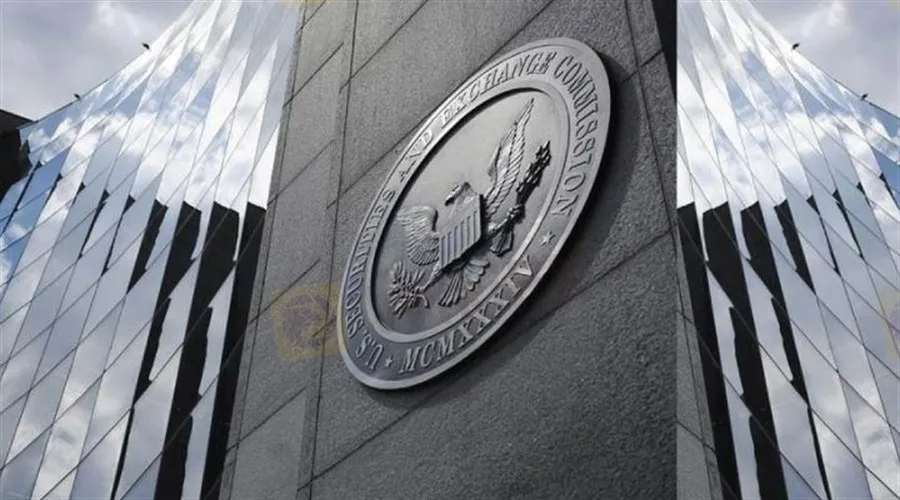简体中文
繁體中文
English
Pусский
日本語
ภาษาไทย
Tiếng Việt
Bahasa Indonesia
Español
हिन्दी
Filippiiniläinen
Français
Deutsch
Português
Türkçe
한국어
العربية
US SEC Starts Administrative Proceedings against American CryptoFed
Abstract:American CryptoFed registered Ducat and Locke tokens in September 2021. The firm's application in May 2022 to withdraw its registration was rejected.

The United States Securities and Exchange Commission (SEC) on Friday kicked off administrative proceedings against American CryptoFed, a Wyoming-based decentralized autonomous organization (DAO).
Take Advantage of the Biggest Financial Event in London. This year we have expanded to new verticals in Online Trading, Fintech, Digital Assets, Blockchain, and Payments.
The regulator wants “to determine whether a stop order should be issued to suspend the registration of the offer and sale of two crypto assets, the Ducat token and the Locke token,” SEC announced in a statement issued on Friday.
Ducat token is an algorithmic stablecoin while Locke is a government token created by American CryptoFed.
The US securities regulators action comes over one year after American CryptoFed filed a Form S-1 registration before the Commission. Form S-1 is an initial registration required of companies that want to offer new securities to the public. American CryptoFed also filed a Form 10 registration that sought to register the tokens as equity securities. However, SEC rejected the registrations.
In November last year, the regulator halted the registration of the two tokens, alleging that the DAO failed to provide information on its “business, management and financial conditions.” This included audited financial statements.
The firm‘s filing also “contained materially misleading statements and omissions, including inconsistent statements about whether the tokens are securities,” the regulator said. In the same month, the regulator issued an order examination to determine whether a stop order should be issued against the DAO’s registration.
However, in the Friday statement, SEC alleged that American CryptoFed failed to cooperate with its examination of its registration statement. Regardless, Marian Orr, the firms CEO, told CoinDesk last year that it refuted “point by point” the criticisms raised by the regulator.
Recent Developments
According to a recent SEC filing, American CryptoFed in May 2022 wrote to the Commission that it would proceed with issuing the tokens in July 2022. But in June, the firm instead filed an application to withdraw its registration from the Commission. SEC said it rejected the application on the ground that “granting of the withdrawal request is not consistent with the public interest and the protection of investors.”
In the new SEC statement, David Hirsch, Chief of the Enforcement Divisions Crypto Assets and Cyber Unit, noted that an issuer that wants to offer crypto assets as securities transactions “must furnish the required disclosure information to the SEC.”
“American CryptoFed not only failed to comply with the disclosure requirements of the federal securities laws, but it also claimed that the securities transactions they seek to register are not in fact securities transactions at all,” Hirsch said.
Are Cryptocurrencies Securities?
In 2018, Jay Clayton, the former SEC Chair, noted that most cryptocurrency products qualify as securities and should be registered with the Commission as such. In August last year, Gary Gensler, current SEC Chair, echoed the same thought, noting that the securities regulator counts many cryptocurrency coins and tokens as securities.
As a result of this disposition towards digital assets, the SEC has been waging war against crypto startups flying crypto offerings without registering them as securities.
These battles include those the regulator has fought or is fighting against creators such as Kik Interactive which raised almost $100 million from the sales of its 'Kin' digital tokens, digital asset lender BlockFi Lending, which offers interest-bearing accounts, and Ripple Labs which raised over $1 billion dollar from sales of its token XRP, all of them without registering them as securities.
With US President Joe Biden's recent executive order calling for a harmonious regulation of the emerging cryptocurrency industry, it remains to be seen what final direction the world's largest economy will take with regard to cryptocurrency regulation.

Disclaimer:
The views in this article only represent the author's personal views, and do not constitute investment advice on this platform. This platform does not guarantee the accuracy, completeness and timeliness of the information in the article, and will not be liable for any loss caused by the use of or reliance on the information in the article.
Read more

UK Authorities Freeze Nearly $7.7 Million in Illicit Crypto Assets Within a Year
Crypto wallets tied to fraud and tax evasion were frozen under new enforcement powers granted in 2024.

Australian Regulator Warns of Money Laundering and Fraud Risks in Crypto ATMs
Australia’s financial regulator has expressed concern about how cryptocurrency ATMs are being used across the country, particularly in relation to illicit financial activity. Authorities are now increasing pressure on ATM operators to improve monitoring standards and ensure compliance with national regulations.

Webull Launches SMSF Investment Platform with Zero Fees
Webull introduces commission-free SMSF trading, offering over 3,500 US and Australian ETFs, with no brokerage fees and enhanced portfolio tools.

April Fool's Day Scam Prevention Experience Collection
Share your “Forex Fraud Prevention Experience”, win WikiFX points and gold rewards!
WikiFX Broker
Latest News
How Crypto Trading Transforms FX and CFD Brokerage Industry
FCA Warns Against 10 Unlicensed or Clone Firms
CySEC Warns Against 14 Unlicensed Investment Websites
Top Currency Pairs to Watch for Profit This Week - March 31, 2025
Will natural disasters have an impact on the forex market?
Philippines Deports 29 Indonesians Linked to Online Scam Syndicate in Manila
Exposing the Top 5 Scam Brokers of March 2025: A Closer Look by WikiFX
Gold Prices Climb Again – Have Investors Seized the Opportunity?
Webull Launches SMSF Investment Platform with Zero Fees
Australian Regulator Warns of Money Laundering and Fraud Risks in Crypto ATMs
Currency Calculator







